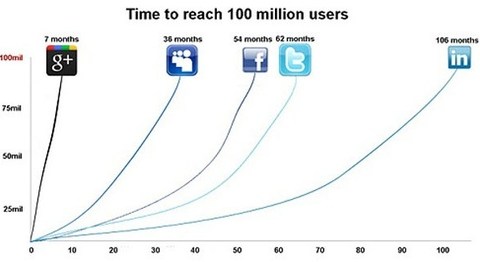The Trick to Viral Growth

I recently helped a friend prioritize their measurement framework for a series of growth experiments. Here’s a lightly edited version of my advice.
When looking to focus on user growth, it’s generally helpful to look at 3 key metrics.
The time it takes for a user share for the first time dictates how quickly you start growing. Most explosive growth applications have invite friends features early in the signup/usage flow.
Length of sharing period will tell you how sustained your user growth will be. If you have an actively engaged user who will continue inviting users for a long time, you’ll be less reliant on having to goose growth through new user acquisition methods. This number will be directly tied to your engagement metrics.
The K Factor is a simple calculation of how many users each new user brings in over a period of time. If you get this number over 1, you have an application that will continue to grow virally until it runs into saturation.
If you’re working on a new project, you’ll generally want to analyze these on fairly short timelines (what happens day to day or week to week). You’ll also probably focus first on time to first share is because that’s the fastest way to get feedback/data on whether your product and acquisition flows work.
Usually that’s the best place to start; you can move on to longer timeframes and the other two factors after that.




